Kabab Chini: Uses, Benefits and Side Effects by Dr. Smita Barode
By Dr Smita Barode +2 more

Get,

to manage your symptom
Get your,


4 Cr+ families
benefitted

OTP sent to 9988776655



You’ve successfully subscribed to receive
doctor-approved tips on
Whatsapp

Get ready to feel your best.

Hi There,
Download the PharmEasy App now!!


Register to Avail the Offer
Send OTPBy continuing, you agree with our Privacy Policy and Terms and Conditions

Hi There,
Sign up on PharmEasy now!!
Trusted by 4 crore+ families

OTP sent to 9988776655



You have unlocked 25% off on medicines




Code: NU25
By Dr Smita Barode +2 more
Table of Contents
Do you know that the Indian hidden gem kabab chini has had great medicinal use since ancient times? It is an important herb in the Ayurvedic system of medicine. Kabab Chini is scientifically known as Piper Cubeba, which belongs to the Piperaceae family. It is native to Java and Borneo and is widely grown in medieval Europe, North Africa, Indonesia and India1.
Kabab Chini is an annual wood-climbing plant that is 5-15 metres high. The climbing branches have oval-shaped leaves, small flowers and greyish brown coloured fruits. The fruit is spicy with a bitter taste and strong aromatic smell. Kabab chini in English is called tailed pepper or cubebe. It is known by different names in different languages and regions of India, kabab chini in Gujarati is tadmari, kabab chini in Tamil is chinamilagu, sinamilagu and valmilagu, whereas kabab chini in Malayalam is vaalmilagu1.
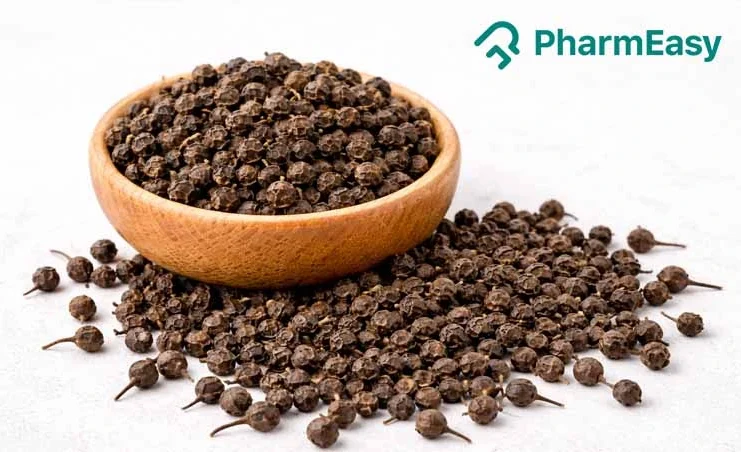
Keep scrolling to read more about the health benefits of kabab chini!
Kabab chini has many bioactive compounds. A few of the major chemical constituents found in it are as follows1:
Although more research is required to understand the nutritional value of kabab chini, as per an ISO certified company, Dry Fruit Hub, the nutritional value of kabab chini per 28 gms is as follows:
Other than culinary uses, Kabab chini is believed to provide relief for those bothered with diarrhoea and loose motions, as a result of its anti-microbial property4.
Dr. Siddharth Gupta, B.A.M.S, M.D (Ayu)
Owing to the phytochemicals and essential oil of the plant, kabab chini has the following properties1:
Discover the ancient secret to relieving asthma and finding relief! From cancer to arthritis, diabetes to gonorrhoea, let kabab chini be your trusted ally on the path to wellness. Kabab Chini is believed to aid in asthma due to its anti-inflammatory nature4.
Dr. Rajeev Singh, BAMS
The existing studies show the following health benefits of kabab chini:

Cancer is a condition where the body cells abnormally undergo rapid multiplication. Cancerous cells can affect any body organ and can be transferred to other organs. A study1 by Drissi et al. in 2022 found that kabab chini fruit extract can cause the death of cancerous cells in breast cancer and colon cancer. The cubebin in the kabab chini extract can also prevent the multiplication of neck and head cancer cells. The findings show that kabab chini might aid in cancer treatment. However, it should not be substituted for ongoing treatment. It is best to consult a doctor regarding the kabab chini health benefits before consuming it.
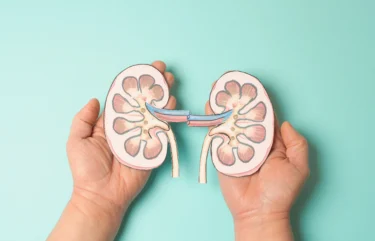
The kidney is an essential organ that removes waste products and excess water from the body. A study2 by Bano et al. in 2018 found that the presence of flavonoids and alkaloids in the kabab chini can reduce kidney stone formation by changing the urine’s composition. Kabab chini also decreases serum urea and creatinine levels, prevents urine retention and promotes the healing of ulcers in the urinary tract. The study suggests that kabab chini may be good for kidney health. However, if you have kidney disease, it is best to consult a doctor and never substitute it as a medicine.

Rheumatoid arthritis is an inflammatory disorder that affects the joints of the body. A study1 by Drissi et al. in 2022 found that the extracts of the kabab chini plant have bioactive compounds that can reduce inflammation. Although more research is required, the study showed that it might act as an adjuvant medicine for inflammatory disorders. However, you should never replace kabab chini with alternative medicine. It is best to consult a doctor regarding kabab chini benefits before taking it for rheumatoid arthritis.
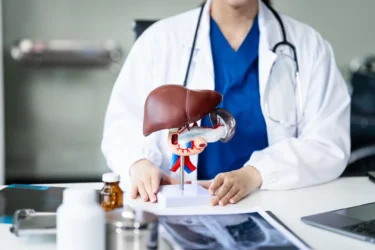
The liver helps the body digest fat, breakdown down nutrients, produce hormones and remove toxic substances. Any injury or damage is a major health concern. A study3 by AlSaid et al. in 2015 on rats showed that kabab chini extract could increase antioxidant activity that reduces oxidative stress responsible for cellular damage, increase protein metabolism, increase anti-inflammatory activities, promote the multiplication of live cells, and reduce liver injuries caused by free radicles. The study suggests that kabab chini has a protective effect on liver damage. However, if you have liver-related health problems, you should not self-medicate them. Instead, consult a doctor regarding kabab chini side effects and health benefits.
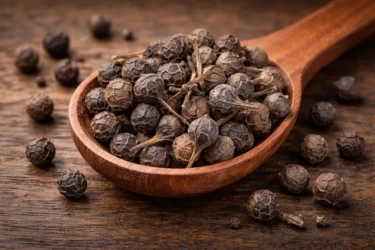
Gonorrhea is a sexually transmitted disease caused by the bacteria Neisseria gonorrhoeae. A study1 by Drissi et al. in 2022 found that the extracts of kabab chini can prevent this bacterial infection by reducing the growth of bacteria and destroying their cell wall, causing their death. This property of kabab chini might help protect the body against gonorrhoea. However, you should consult a doctor regarding using kabab chini for effective treatment in case of gonorrheal infection.
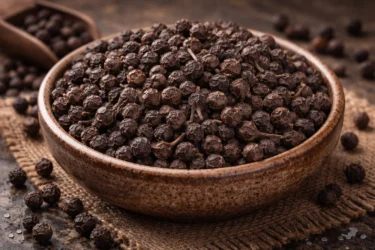
The other potential kabab chini medicinal uses are as follows1:
Studies that showed kabab chini use in various conditions need to be revised, and further studies are needed to understand the full extent of the health benefits of kabab chini on human health.
Did you know kabab chini might help you if you get diagnosed with Kala-azar? Due to its anti-parasitic nature, Kabab Chini is believed to aid in Kala-azar caused by a parasite, Leishmania4.
Dr. Smita Barode, B.A.M.S, M.S.
Kabab chini can be used in the following ways1:
You must consult a qualified doctor before taking any herbal supplements. Do not discontinue or replace an ongoing treatment of modern medicine with an ayurvedic/ herbal preparation without consulting a qualified doctor.
Consuming kabab chini in moderation is considered safe. There have been no specific recorded kabab chini side effects. However, the direct use of kabab chini essential oil on the skin may irritate some people with sensitive skin.
However, consult a doctor immediately if you notice any unusual symptoms after eating them.
A few of the important precautions taken when using kabab chini are as follows:
A study by AlSaid et al. in 2015 showed that kabab chini might affect the liver cells and their functioning3. Some medicines are broken down and altered in the liver after consumption. Therefore, if you are taking the following medications, it is advised to consult a doctor before consuming kabab chini:
Also Read: Quinoa (Chenopodium quinoa): Uses, Benefits, Side Effects By Dr. Smita Barode
Kabab chini spice in English is called tailed pepper. It is also known as Tadamari in Gujarati, Kaba-Chini in Maithili, Kankol in Marathi, Vaalmilagu in Malayalam, Kabachin in Oriya, Chalavamiriyaalu and Tokamiriyalu in Telugu, Chinamilagu, Sinamilagu, and Valmilagu in Tamil1.
Kabab chini might aid in treating gonorrhoea, diabetes, rheumatoid arthritis, liver damage, kidney disease, depression, fungal and tapeworm infection1.
The edible parts of the kabab chini plant are its fruit and dried berries.
Kabab chini is a spice used for flavouring curries. It is used as a natural food preservative and colouring aid. It is also used in potpourri, cosmetics and perfumes.
Yes, it is good for your health. As per Unani and Ayurveda, kabab chini eases pain and inflammation and acts as a potent antioxidant. It is used to treat fungal, bacterial and worm infections.
Disclaimer: The information provided here is for educational/awareness purposes only and is not intended to be a substitute for medical treatment by a healthcare professional and should not be relied upon to diagnose or treat any medical condition. The reader should consult a registered medical practitioner to determine the appropriateness of the information before consuming any medication. PharmEasy does not provide any guarantee or warranty (express or implied) regarding the accuracy, adequacy, completeness, legality, reliability, or usefulness of the information; and disclaims any liability arising thereof.
Links and product recommendations in the information provided here are advertisements of third-party products available on the website. PharmEasy does not make any representation of the accuracy or suitability of such products/services. Advertisements do not influence the editorial decisions or content. The information in this blog is subject to change without notice. The authors and administrators reserve the right to modify, add, or remove content without notification. It is your responsibility to review this disclaimer regularly for any changes.
Comments

Leave your comment...
You may also like
Comments